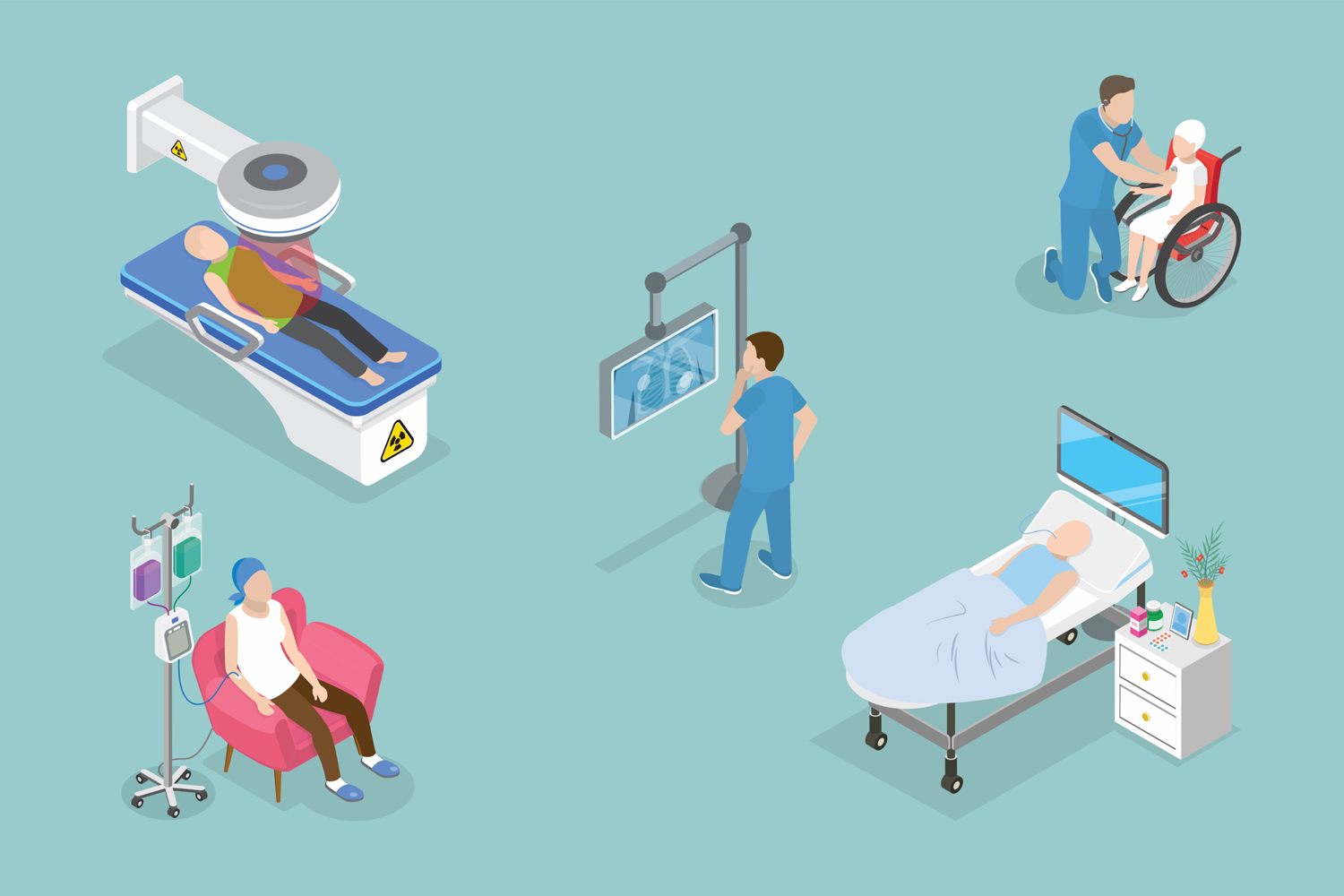Every week, the editors of Cancer Today magazine bring you the top news for cancer patients from around the internet. Stay up to date with the latest in cancer research and care by subscribing to our e-newsletter.
Studies Reinforce Efforts to De-escalate Cancer Treatment
Research is increasingly discovering that less can be more when it comes to cancer therapy, as new studies find oncologists can reduce the amount of treatment patients receive—and the associated side effects—without sacrificing outcomes. “The good news is that cancer treatment is not only becoming more effective, it’s becoming easier to tolerate and associated with less short-term and long-term complications,” William G. Nelson, director of the Johns Hopkins Kimmel Cancer Center in Baltimore and Cancer Today’s editor-in-chief, told the Associated Press. This trend toward de-escalation could be seen in three studies presented at the American Society of Clinical Oncology (ASCO) meeting, held in Chicago May 30 to June 3. In the first study, researchers found less invasive surgery did not impact survival in advanced ovarian cancer. Half of the 379 participants had lymph nodes that appeared healthy removed during surgery, while the others did not, with no difference in overall survival between the two groups. In a second study, all 438 esophageal cancer patients underwent chemotherapy and surgery, with half additionally having radiation. After three years, the cohort that received just chemotherapy and surgery had better overall survival (57% vs. 51%). Finally, researchers found a less intensive chemotherapy regimen for Hodgkin lymphoma resulted in higher progression-free survival (91% vs. 84%) and caused fewer side effects than a more intensive therapy.
LGBTQ+ Individuals Face Increased Cancer Risk, Barriers to Care
Members of the LGBTQ+ community are more likely to have high cancer risk and encounter substantial barriers to accessing cancer screening and treatment, according to two studies released to coincide with the start of Pride Month. In the first study, published online May 31 in Cancer, the American Cancer Society analyzed federal health data from 2020 to 2022. Researchers found lesbian, gay, bisexual and transgender youths and lesbian, gay and bisexual adults were more likely to smoke compared with heterosexual and cisgender people of similar ages, USA Today reported. Bisexual women had higher alcohol use and obesity rates, while bisexual women and transgender people engaged in less physical activity. Researchers noted this may be due to “minority stress,” where increased discrimination can lead to behavior that elevates cancer risk and mental health or substance abuse issues. Additionally, transgender men had lower screening rates for cervical and colorectal cancers, while gay and bisexual men had higher rates of HIV and HPV. In the second study, presented at the ASCO meeting, researchers surveyed 817 LGBTQ+ cancer patients, with 80% reporting they had not received appropriate cancer screening. Only 24% said they felt comfortable telling their doctor they identified as LGBTQ+, and just 4% reported feeling respected by their providers. “It harms people’s health to be silent, to be invisible, to not be their full selves when they’re facing something as life-changing as cancer,” Shail Maingi, the study’s lead author and an oncologist at Dana-Farber Cancer Institute in Boston, told USA Today.
Targeted Therapy May Be New Standard of Care for EGFR-mutated NSCLC
Experts said research presented at the ASCO meeting may change standard treatment for stage III EGFR-mutated non-small cell lung cancer (NSCLC) that cannot be treated with surgery. Nearly a third of NSCLC patients are diagnosed at stage III, and 60% to 90% of those people cannot have surgery, MedPage Today reported. These patients currently receive chemoradiation, followed by the immune checkpoint inhibitor Imfinzi (durvalumab), but studies have shown the drug may not benefit people whose tumors have EGFR mutations. In the phase III clinical trial, which was simultaneously published online in the New England Journal of Medicine, 216 people with unresectable stage III EGFR-mutated NSCLC who had received chemoradiation took either the targeted therapy Tagrisso (osimertinib) or a placebo. After three years, participants who received Tagrisso had better overall survival than those who took the placebo (84% vs. 74%). They also had seven-times-longer progression-free survival (39.1 months vs. 5.6 months). “Osimertinib will become the new standard of care for patients with locally advanced non-small cell lung cancer following definitive chemoradiation,” said Suresh Ramalingam, the study’s lead author and executive director of the Winship Cancer Institute in Atlanta. “This will be practice changing,” David Spigel, a medical oncologist at Sarah Cannon Research Institute in Nashville, Tennessee, who was not involved in the study, said during a press conference.
Cancer Today magazine is free to cancer patients, survivors and caregivers who live in the U.S. Subscribe here to receive four issues per year.





